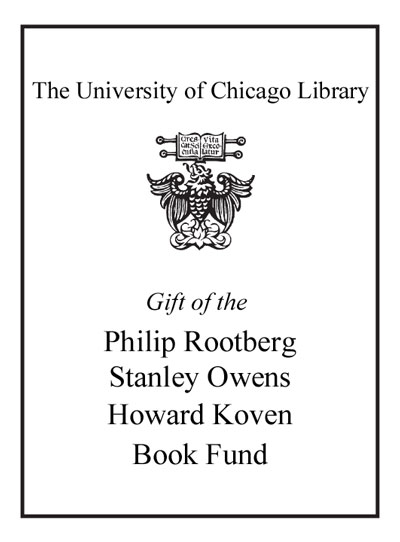Part One Time Sickness 1. In the poetry of the prayer book, the Sabbath is a bride greeted by an impatient bridal party with an almost anguished relief. In the more prosaic dominion of my house, the Sabbath sees herself in and sits down to wait. As the woman of the house, and, more to the point, the only person in my family whose heart pounds anxiously at the approach of a religious obligation, it's up to me to acknowledge her presence by lighting the candles eighteen minutes before sunset, when they should be lit. During the winter, however, I don't light the candles on time. I ignore the clock at the bottom of my computer screen and when I don't see the numbers turn to, say, 4:10, I don't look out the window, where the shadows of our trees are beginning to black out the backyard. I know without looking, though, that the room where the candles would be burning is having its last golden moment of the day, the sun having sunk low enough to gild the walls. The sun sets shortly thereafter and plunges the world inside my time zone into what Jewish tradition regards as a kind of temporal no-man's-land. It's neither the end of the sixth day nor the beginning of the seventh (the Jewish day beginning and ending at nightfall). It's twilight. The rabbis, who mixed their prescriptions and proscriptions with legend, defined twilight as "from sunset as long as the face of the east has a reddish glow." They also called the twilight before the Sabbath a witching hour. The story is told that on the very first Sabbath twilight God created ten magical objects that he would later use to make miracles: the rainbow that came after the flood to assure mankind that God wouldn't destroy the world again; the staff with which Moses wrought the ten plagues; the mouth of the earth that opened up to swallow an Israelite who tried to launch a coup against Moses; and so on. By the time I'm ready to enter the kitchen and start my Sabbath, the moment for miracles will have passed. So will my chance to cheat time. The rabbis were inflexible about punctuality. The Romans having leveled the Temple more than a century before the rabbis became the Jews' highest religious authorities, the sages inherited an inoperative religion of space, and set about turning it into a religion of time. It's no accident that in the very first passage of the Talmud, they try to determine the exact instant in the evening after which a Jew may say the Shema, the most important prayer in Judaism. To the rabbis, time is irreversible. Generally speaking, either you do things at the appointed time or you don't do them at all. Such is the magic of the twilight before the Sabbath, though, that for that moment the march of time pauses in mid-step. The Jew may no longer light candles, but he or she may complete a few last preparations. Of course, the rabbis disagreed about how long this reprieve should last. Is it still twilight if the lower half of the horizon is dark but the upper half is still red? Maybe a more precise measure is the time it takes for a man to walk half a mil (three-quarters of a mile). Finally, one nervous adjudicator declared that twilight is "as the twinkling of an eye" and impossible to define, so you should never do even what is permitted at twilight lest the Sabbath has already come and you violate it accidentally. Nonetheless, the twilight before the Sabbath is an exception to the time-bound nature of most Jewish obligations, and, like most exceptions, it underscores the rule. Jewish law is like musical notation; it gives meaning to the stuff of life by regulating it in time. The Sabbath is its most sacred interval. That I can't subsume my schedule to its sterner rhythms testifies, I feel, to a flaw in my character. But it also says something about how hard it is for a twenty-first-century American to accept being go Excerpted from The Sabbath World: Glimpses of a Different Order of Time by Judith Shulevitz All rights reserved by the original copyright owners. Excerpts are provided for display purposes only and may not be reproduced, reprinted or distributed without the written permission of the publisher.

